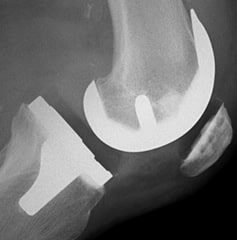
Joint replacement surgery can dramatically improve the quality of life in an individual who has a successful result. To the contrary, if you have a complication, it can be a disaster. Potential complications following a hip replacement include:
- Infections
- dislocations
- loosening of your new hip
- blood clots
- heart attack
- stroke
Our society as a whole is getting bigger, much bigger. It is not uncommon to have patients who are morbidly obese, with a BMI over 40 requesting a joint replacement because their hip pain is crushing their quality of life.
Would that same morbidly obese patient with a BMI just over 30-35 still request a hip replacement if they knew that their infection risk was 4 times higher than that of a thinner person? Does that person understand that in order to treat a hip replacement infection that we need to remove the hip replacement, treat them with antibiotics for 6 weeks or more and then operate a third time to try and put in another hip replacement? Exactly why the their risk is so high is not entirely clear. It may relate to the amount of fat around the joint and muscles. Fatty tissue is poor quality tissue, fights infections poorly and serves as a great food source for many bacteria.
I’m not sure that so many people with a BMI greater than 35 would rush into surgery if they realized the gravity of the risks and potential complications. This recent study shows the rates of complications following a hip replacement in the morbidly obese population. If those same people have any other risk factors for infection such as diabetes then their risk is even higher.
Other studies have shown that patients do well with a staged approach. Initially they undergo counseling and potentially bariatric surgery (weight loss surgery). After they have recovered they can then consider whether or not a joint replacement is still required since weight loss might result in a significant drop in pain. If the bariatric surgery is successful, the eventual joint replacement will be easier to perform, easier to recover from and the risk of infection will drop dramatically.
Proceeding with a joint replacement if you are morbidly obese is a risky proposition. The question is not can we as your surgeon do it…. the question is should we do it.













